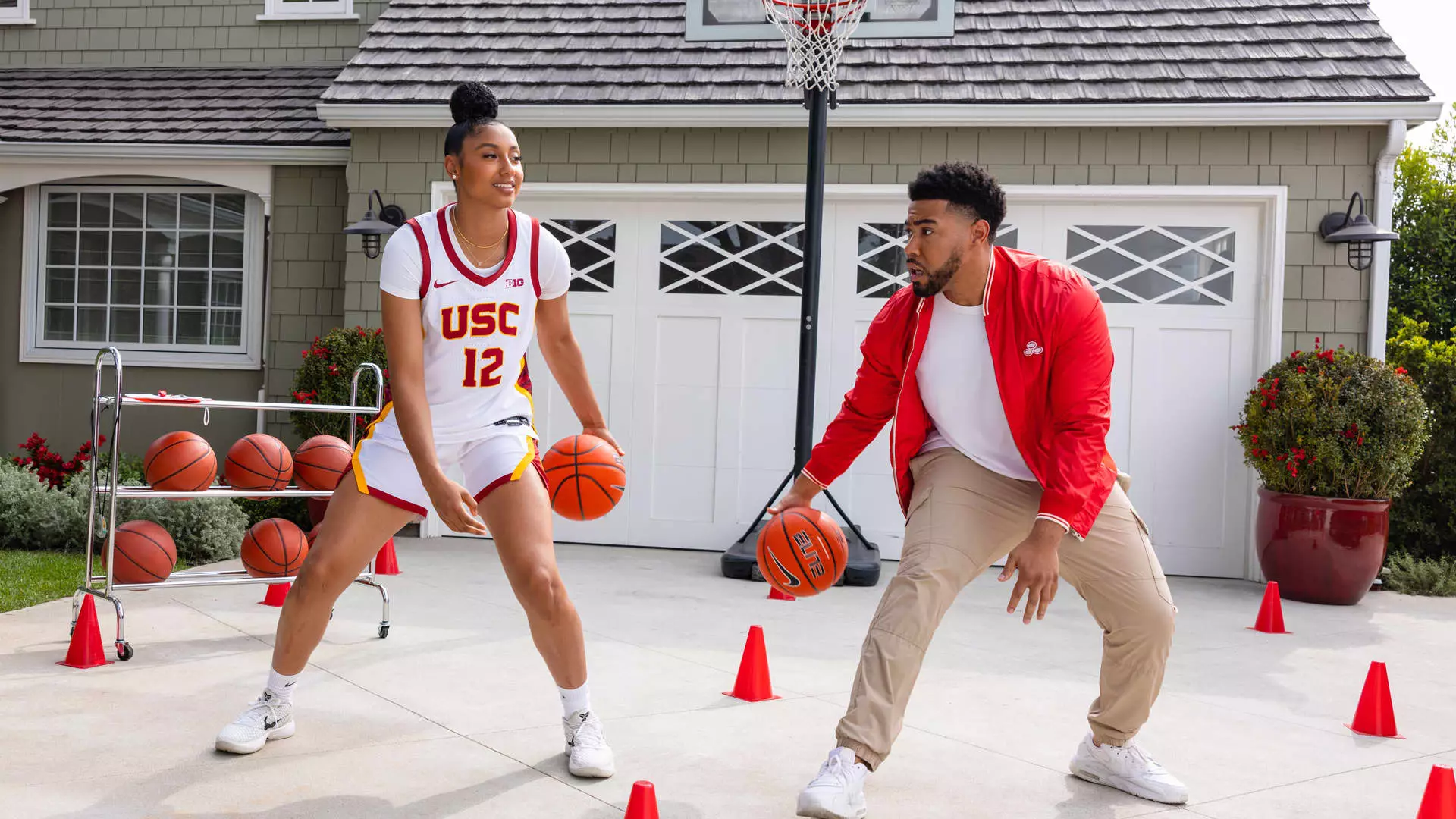In a significant gesture towards inclusivity and empowerment in women’s sports, State Farm has made notable strides with two recent partnerships. These initiatives underscore the insurance titan’s commitment to supporting women’s athletics while also signaling a shift in how corporate brands engage with diverse audiences. By securing a name, image, and likeness (NIL) deal with rising college basketball star JuJu Watkins and sponsoring the newly formed 3×3 women’s basketball league, Unrivaled, State Farm is reinforcing its investment in a thriving sector that has historically been underserved.
JuJu Watkins, who made a splash as a five-star recruit prior to her collegiate debut, has quickly emerged as a standout player at the University of Southern California (USC). Averaging an impressive 27.1 points per game during her freshman campaign, Watkins not only showcases extraordinary talent on the court but also embodies the spirit of a new generation of athletes who are redefining women’s sports. Her partnership with State Farm, where she will feature alongside the brand’s iconic mascot, Jake, serves as a marketing vehicle that capitalizes on her rising popularity and skill.
Watkins’ excitement about her partnership with State Farm reflects a mutual recognition of value. “It’s an honor to partner with State Farm,” she stated, acknowledging the company’s long-standing commitment to basketball and women’s sports. This relationship echoes a broader trend in which athletes are no longer just competitors but also influential figures whose endorsements can elevate brand visibility and resonate with a demographic that increasingly prioritizes authenticity and representation.
Additionally, State Farm’s sponsorship of Unrivaled marks a strategic move to gain a foothold in the quickly evolving landscape of women’s basketball. The 3×3 format has grown in popularity and offers a fresh take on the game, attracting diverse audiences. By positioning itself in this innovative league as it prepares for its inaugural season, State Farm not only amplifies its brand presence but also aligns itself with an engaging and fast-paced variant of basketball that appeals to younger viewers.
The insurance company’s visibility within Unrivaled’s properties during the season enhances its commitment while providing a platform for grassroots engagement. As women’s sports gain momentum, State Farm’s timely investment could prove pivotal, potentially outperforming traditional sponsorship strategies by connecting directly with fans in unique and dynamic ways.
A Legacy of Commitment to Women’s Sports
State Farm’s partnership initiatives are not merely fleeting moments of sponsorship; they are part of a decade-long commitment to women’s sports. With historical support dating back to featuring WNBA star Sue Bird in an advertisement back in 2015, the company has continuously laid the groundwork for its evolving strategy. This consistency has created a recognizable brand narrative that resonates with consumers who share values of equality, empowerment, and engagement.
In examining the tangible outcomes of these investments, State Farm’s analytics reveal a favorable ROI on its advertising efforts linked to women’s sports. Reports indicate that commercials featuring Caitlin Clark generated compelling engagement metrics, highlighting that advertisements aired during pivotal games significantly boosted consumer interaction. This data-driven approach to marketing reinforces the idea that engagement with women’s sports is not only ethically commendable but also financially viable.
The Business Case for Supporting Women’s Sports
Kristyn Cook, the chief agency, sales and marketing officer at State Farm, insightfully notes that the brand’s investment reflects a keen understanding of consumer behavior trends, particularly those surrounding women. As more women step into leadership roles as business owners and decision-makers, brands must reevaluate their marketing strategies to reflect this demographic’s growing influence and significance in the marketplace.
The call to action is clear: brands that wish to thrive in today’s competitive landscape should actively seek ways to integrate women’s sports into their core strategies. Cook’s question, “How should women’s sports be part of the business strategy?” should resonate widely across industries, challenging the status quo and urging businesses to embrace opportunities that reflect an evolving social landscape.
State Farm’s recent initiatives shine a spotlight on the intersection of diversity, engagement, and corporate responsibility in sports marketing. As the promotion of women’s athletics continues to grow, such corporate commitments will play a crucial role in shaping the future of sports and commerce alike.

